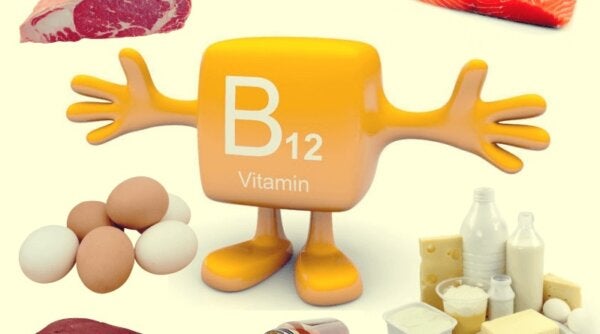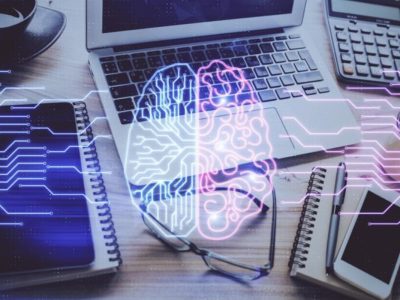When it comes to brain health, a lack of vitamin B12 can really make a difference. We’ve known for a long time that its presence promotes the healthy functioning of the nervous system. It’s also important for the production of red blood cells. However, in recent years, scientists have discovered that a vitamin B12 deficit can also cause cognitive disorders.
Nowadays, psychiatrists usually ask their patients to undergo blood tests in order to establish their levels of cobalamin, otherwise known as vitamin B12. Its deficit derives from a specific kind of anemia. However, it also causes the onset of psychological disorders such as anxiety and depression.
Furthermore, doctors and neurologists know that, as we age, the levels of this vitamin decline markedly, causing its negative effects. In addition, people who follow a strict vegan diet are also at risk of suffering from vitamin B12 deficiency.
The effects of a low level of this vitamin can translate into a wide variety of cognitive problems. These might be memory failure, problems in concentration and verbal fluency, and mood changes, among others. In fact, vitamin B12 has a significant impact on neurological health. Its levels tend to decline gradually from the age of 40. However, its loss becomes more evident from the age of sixty onwards.
Vitamin B12 and brain health
Vitamin B12 is present in a large number of animal products, such as meat, eggs, dairy, honey, and oily fish. Furthermore, it’s the essential component for the healthy functioning of the central and peripheral nervous system. This is because it promotes neuron health. Above all, it synthesizes methionine.
- Methionine is an amino acid that promotes methylation. This is a series of biochemical reactions that are essential for the production of myelin, DNA synthesis, and RNA. Methylation is also important for the proper functioning of neurotransmitters.
- Without an adequate level of methionine, the most basic of neurological functions can’t be performed.
- Dr. Dina Silva conducted a study at the University of Lisbon. He pointed out that a lack of vitamin B12 and an increase in homocysteine levels have a direct relationship with the development of cognitive decline in the elderly.
- Similarly, cognitive failures can also occur in the younger population if they don’t maintain an adequate diet.
Physical and cognitive symptoms caused by a lack of vitamin B12
One of the most obvious symptoms of a vitamin B12 deficit is a tingling sensation in the limbs. Patients feel an unexplained “pins and needles” effect in their hands or feet due to certain failures in the nervous system.
- Tachycardia is another common symptom. This is because lower levels of vitamin B12 equals fewer blood cells in the body. This means the heart has to pump harder due to a lack of cellular oxygen.
- People might also experience muscle pain and numbness of the limbs.
- They also suffer problems with thinking and making decisions. Indeed, one of the most notable effects of the lack of this vitamin is a person’s inability to reflect, make decisions, and think quickly and effectively. This is due to a lack of connectivity between neurons.
- They also might suffer memory loss. This might start gradually with simple forgetfulness.
- Their verbal fluency might be reduced. In other words, a loss of the ability to find that particular word that’s on the tip of their tongue.
- Spatial orientation problems also frequently occur due to a vitamin B12 deficit.

Maintaining adequate levels
The body doesn’t produce vitamin B12. The same thing happens with vitamin D. The body can’t produce it but it can store it. For this reason, it’s important to maintain a balanced and varied diet.
Vegans and vegetarians should always consult a nutritionist to find out how they can replace the vitamins missing from a diet lacking in animal products.
On the other hand, for those who follow a normal diet, where animal products aren’t excluded, these are the foods that are richest in Vitamin B12:
- Beef liver.
- Beef.
- Clams.
- Fresh pasteurized milk.
- Mackerel.
- Salmon.
- Mussels.
- Egg yolk.
- Brie.
Everyone should check their vitamin B12 levels frequently. Furthermore, vitamin B12 tablets should never be taken without first establishing whether they’re actually required. In fact, a doctor should always decide whether they’re necessary and. if so, in what dosage.
Vitamin B12 is extremely important in maintaining good health overall. More particularly, it’s essential for both neurological and cognitive well-being.
The post A Lack of Vitamin B12 Can Cause Cognitive Decline appeared first on Exploring your mind.



















Comments